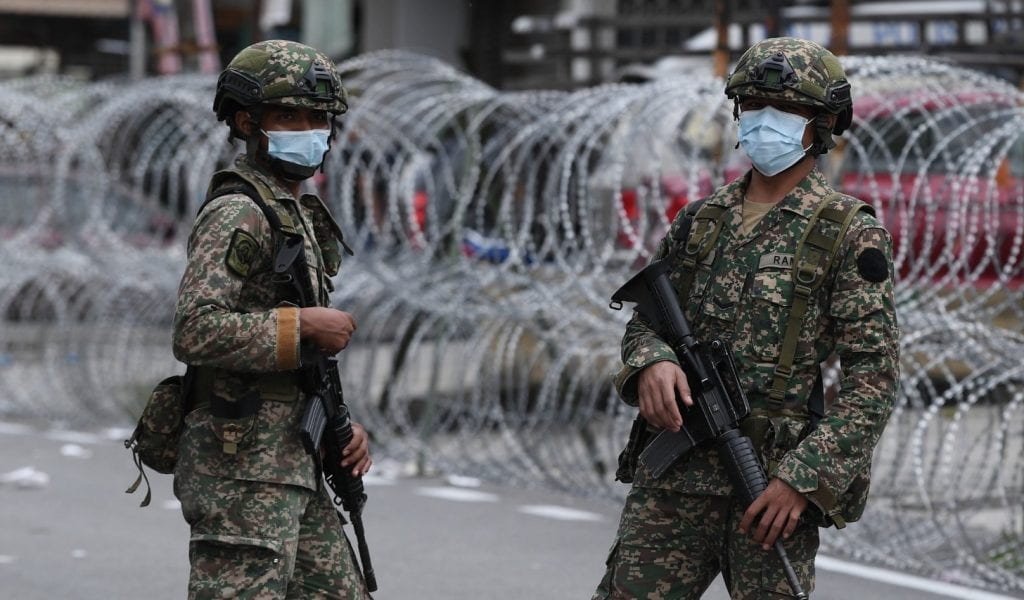Corona Wars: The Cost of Calling Disasters ‘Wars’
By Patrizia Isabelle Duda, on 4 May 2020
Written by Patrizia Isabelle Duda and Navonel Glick
On March 17th, U.S. President Trump began calling the Covid-19 pandemic a “war”, to wide acclaim by supporters and scathing condemnation by critics.
The reasons for using the war metaphor are straightforward. By calling the pandemic a war, Trump is appealing to a familiar scenario that we feel we ‘know’ how to relate to. It ostensibly simplifies the crisis, mobilises the public, and calls for unity.
The war metaphor is a powerful and effective tool that is often used in politics, but it is also pervasive in the world of disaster risk reduction and response. The historical links between disaster management and the military are well-documented. Today, from operational frameworks like the Incident Command System (ICS) that were inspired by military management structures, to the extensive use of military terminology like ‘deploy’, ‘mission’, or ‘surge’ by even the most ‘military-averse’ NGOs (e.g. IRC, Plan International), the connection remains. Even the widely revered (and much maligned) ‘logical framework’, meant to improve transparency and accountability in the aid sector, originated in planning approaches for the U.S. military.
At first glance, the war metaphor makes sense. The chaotic images from disaster areas that make the headlines are reminiscent of war zones, and the associated urgent, high-stress, life-and-death decisions demand composure, bravery, and decision-making attributes that we have learned to equate with our armed forces.
Yet, the analogy quickly crumbles. For one, as most disaster practitioners would confirm, the period immediately following a disaster which might require such an approach, at best, represents only a fraction of any disaster response effort, let alone long-term recovery or disaster risk reduction (through sustainable development).
In addition, as our experience in the field shows, armed forces are notoriously poor at interacting with vulnerable civilian populations, particularly in complex situations of unrest. More importantly, the war analogy is plagued by a core contradiction. While it can be argued that armies engage in war to ‘defend’ or ‘protect’ a population, destruction is often their main tool for doing so. This is not what disaster response or humanitarian aid are about, much less how one reduces disaster risks and builds disaster-resilient communities.
—
So why does the war metaphor continue to dominate the field? The simple answer may be because it works. It appeals to the pleasure-pain principle, triggers our basic fight-or-flight instincts, and provokes a reaction.
Yet, this strategy may be poorly suited to pandemics. We rightfully celebrate our health-care workers and other front-line personnel as ‘heroes’—yet another war term—and many of them may be faced with ‘war-like’ situations of urgency and life-and-death situations. But for the rest of us, “wash your hands” and “stay at home” are woefully anti-climatic ‘weapons’ to ‘fight’ the ongoing coronavirus ‘enemy’.
Furthermore, the ‘war metaphor’ may succeed in the short-term during a crisis, but such bursts of energy (or adrenaline) cannot be maintained over time. Pandemics are not addressed by acute, short-term measures or bursts of adrenaline, but instead, by a complex web of systematic health and public health initiatives, drawn out over a long period of time.
The most damning trait of the war metaphor is, therefore, the focus on the disease itself, instead of the systemic issues that allowed it to become a pandemic. Diseases, much like earthquakes or hurricanes, are natural hazards. They only become disasters when we are left exposed and vulnerable to them by insufficient preparedness and poor risk reduction measures. Thus, tackling the underlying social, economic, and political systemic issues that drive disaster vulnerability should be our priority.
The analogy of a marathon instead of a sprint comes to mind, except that in this case the race has no end. In fact, it never was a race to begin with. This may be the biggest fallacy with using the war metaphor for disasters: wars are arguably won or lost; at least they (should) end. Disaster preparedness and reducing risks do not—they are an ongoing process of achieving and maintaining sustainable practices.
The war metaphor, therefore, from the very beginning, begs to disappoint, because there will not be the closure it promises. Calling our health workers and other frontline workers ‘life-saving heroes’ is an admirable title they deserve, but were they any less worthy of it before the pandemic? And will they not continue to perform the same essential role once the coronavirus pandemic has passed?
In this time of acute crisis, when the lack of preparedness and risk reduction is painfully exposed, we may be glad to have the war metaphor for the action that it catalyses. But by continuing to prioritise response over prevention, and perpetuating the myth of the ‘race’, what social habits will we continue to reinforce, and at what cost?
What would an alternative look like?
 Close
Close



